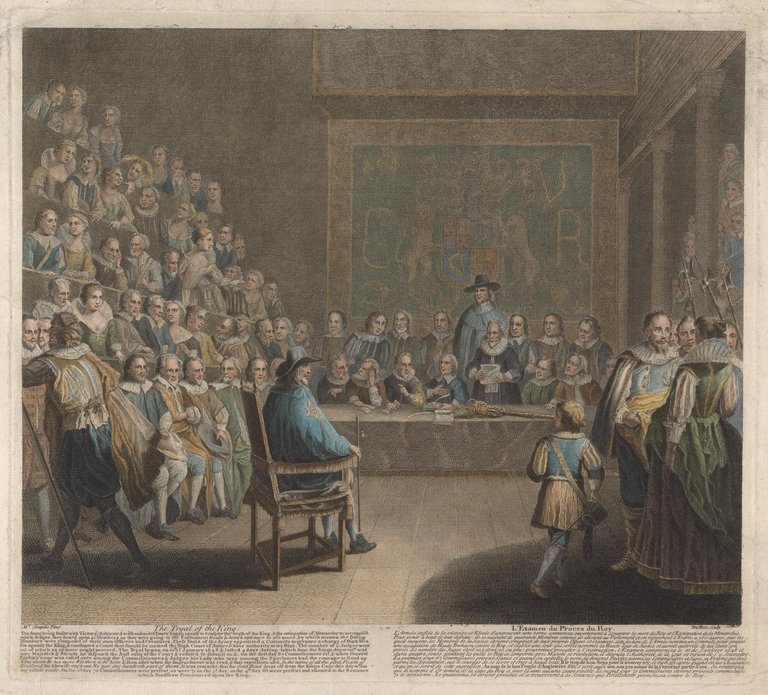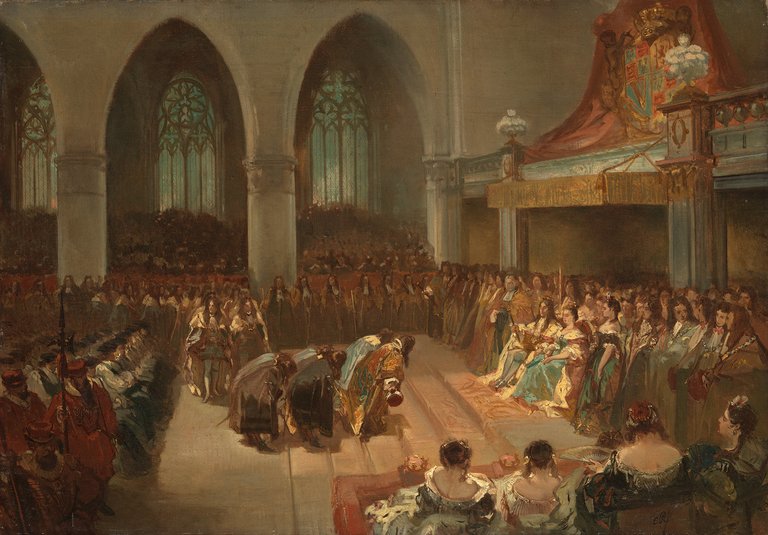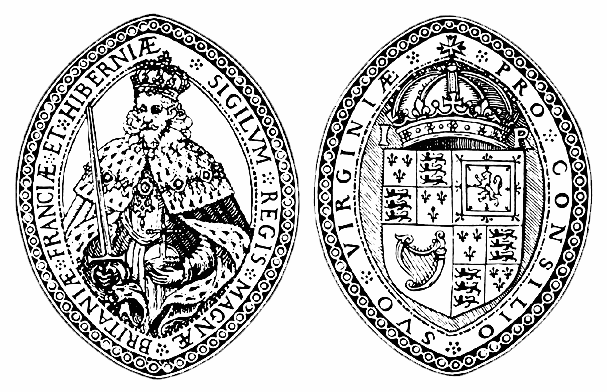Every year on July 4 citizens of the United States celebrate Independence Day. We observe the anniversary of declaring our independence from England. Our separation from England was hard won, but it was not the outcome we sought at the beginning of our conflict with the 'Mother Country'. What we wanted was to be acknowledged, to be respected and to have a voice in our own governance. We wanted our rights as Englishmen. We wanted the Crown and the Parliament of England to apply the rule of law to us as they did to those who lived in England proper.
After years of agitating for equal treatment with our brethren across the sea, colonists decided the only path to full rights was separation from the Crown.
Drawing Depicting the Treatment Colonists Suffered at the Hands of Parliament and the Crown
![The_able_doctor,_or_America_swallowing_the_bitter_draught_(NYPL_Hades-248165-425086)_(cropped)[1].jpg](https://images.hive.blog/768x0/https://files.peakd.com/file/peakd-hive/agmoore/23wMjBS9EMArjT8SJcKWp6Xn2DBmBq2eAiv9YHP4cZ9THqXsVKCEcXEsD5hDiav9ehqvY.jpg)
Wikimedia Commons 1774 Public domain. Drawing is from1774, two years before the Revolution. The woman on the ground represents the colonies. The title over the picture is, "The Able Doctor, or America Swallowing the Bitter Draught"
We shed blood, spent treasure in the fight to gain representation. We wanted a say in the laws that governed us. We rejected the notion that the Crown, or Parliament could unilaterally decide our destiny. The rule of law in the United States was dearly earned.
The first thing the leaders of the new country did when the war was over was draft a Constitution. This was a set of laws agreed upon by all, laws that would govern the citizens of the United States. Representatives from across the land hammered out compromises that resulted in the Constitution. It was a truly representative document (though obviously it did not represent slaves and women) that became sacred. It was the final authority in the land.
When a new president is sworn into office in the United States, he does not swear loyalty to the United States or to the people. He swears loyalty to the Constitution. The words of the oath are prescribed by the Constitution. Here is the exact text as it appears in that document:
Before he enter on the Execution of his Office, he shall take the following Oath or Affirmation:— "I do solemnly swear (or affirm) that I will faithfully execute the Office of President of the United States, and will to the best of my ability, preserve, protect and defend the Constitution of the United States."
Rule of Law
Every just society is governed by the rule of law. Even societies that are not just have laws that everyone understands. Law is a kind of language. It offers order and predictability so that people can live together in an orderly way. Without law, there is chaos.
Here is a scene from the movie Mad Max Beyond Thunderdome. Tina Turner, as Aunty Entity, is the ruler of Bartertown, an oasis of relative order in a post-apocalyptic world. How does Aunty Entity rule? Certainly by force, but also by law. Though these are laws she has written, everyone in Bartertown knows what they are, and lives by agreement under them. The laws prescribe order.
Outside Bartertown there is no order, there is no law. As despotic as Aunty Entity is, she has made Barterown a place where people can live with an expectation of relative order.
Even Aunty Entity acknowledges the authority of law. She does not defy the law, but cites another law to support her actions. Law applies even to the lawgiver.
On Tuesday, January 30, 1649 James I of England was beheaded before a large crowd. His crime? An attempt to "...uphold in himself an unlimited and tyrannical power to rule according to his will..." As the crisis leading up to the beheading is described in history books, underlying factors are explained. These have to do mostly with religious conflict. However, Charles wasn't beheaded because of religion. He was beheaded because he refused to acknowledge the authority of Parliament.
Charles on Trial Before Parliament

Wikimedia Commons Public domain
Charles believed he ruled by divine right, that God had anointed him and his power was unassailable. Parliament insisted that law was the ultimate arbiter of the king's actions, and Parliament, as representative of the people, determined the laws.
The conflict came to a head over revenue. The king needed money to wage war. He had dissolved Parliament and governed without it for years, but he needed to assess levies in order to pay for his war.
In the end, civil war broke out, between Parliament and the king's backers. The king lost. He was put on trial but refused to enter a plea because he refused to acknowledge the authority of the court. Only he, he asserted, could authorize a court.
This defense did not serve him well, and ultimately led to his execution.
A subsequent conflict between Parliament and the Crown was resolved without a decapitation. Once again, religion was a precipitant of the crisis, but the king's abuse of law became central to its resolution. The resolution came to be known as The Glorious Revolution.
The Glorious Revolution
The king (James II) was deposed and replaced by his daughter, Mary, and her husband, William of Orange.
With this change in monarchs, Parliament asserted its supremacy over the Crown. A Bill of Rights was enacted that stated the king could not arbitrarily suspend laws or enact laws. Parliament, as the people's representative, had the authority to pass laws. The King could not dictate policy. He was subject to the rule of law, as determined by Parliament.
Wikimedia Commons. Public domain*
Taxation Without Representation was the clarion call of the American Revolution. What did that mean? Why was this call to action so powerful?
The colonists considered themselves Englishmen who enjoyed the protections of law earned over the centuries. However, the king and Parliament imposed laws and regulations on the colonists. The colonists were given no voice in these decisions. It was the position of the colonists that, by imposing these laws the Crown and Parliament were breaking a contract with the people. The colonists sent repeated appeals to the Crown and to Parliament. They pleaded their case as Englishmen. As such, they asserted their right to be represented in Parliament, and to have their rights as Englishmen respected.
The claim to the rights as Englishmen was not spun from thin air. It was a status granted to the colonies by James I when the Virginia colony was established in 1606. This was the very first of the English colonies in America. The rights of the colonists were granted in the First Virginia Charter, 1606. The Charter stated:
Alsoe wee doe, for us, our heires and successors, declare by theise presentes that all and everie
the parsons being our subjects which shall dwell and inhabit within everie or anie of the saide
severall Colonies and plantacions and everie of theire children which shall happen to be borne
within the limitts and precincts of the said severall Colonies and plantacions shall have and
enjoy all liberties, franchises and immunites within anie of our other dominions to all intents
and purposes as if they had been abiding and borne within this our realme of Englande or anie
other of our saide dominions.
Virginia Company of London Seal, 1606-1624

Wikimedia Commons. Public domain
Thus, in their cry, "Taxation Without Representation" the colonists were charging that the Crown had placed them outside the law. This, to the colonists, was intolerable. The arbitrarily imposed edicts were given a name in the colonies: Intolerable Acts.
Common Sense, by Thomas Paine: a Pamphlet That Made the Case for Revolution
![Commonsense[1].jpg](https://images.hive.blog/768x0/https://files.peakd.com/file/peakd-hive/agmoore/23wMshTawxkdpqQ3cSWsDeGnj7g6uPbqqYYKHezJ6jN3QtBGxyLGsXqXN6v541aoLe1rg.jpg)
Wikimedia Commons
George Washington
In his inaugural address, the first ever president of the United States acknowledged the powers granted to him and bowed to the will of Congress. Congress, the legislative branch, was provided for in the first Article of the Constitution. The presidency, the executive branch, was described in the second Article. As ordained by the Constitution, Congress answered to the people and therefore was the greater authority. The new country had established a representative government, and the voice of the people was paramount.
Washington stated in his inaugural that his powers were limited by the,"...great constitutional charter under which you are assembled, and which, in defining your powers, designates the objects to which your attention is to be given."
In this acknowledgement of Congressional supremacy, the president described a government structure that paralleled the relationship between Parliament and the Crown in England. He described a government in which the president did not act unilaterally, but was bound by law.
The road to rule of law in the United States' representative government was long, and stained by blood. The road back to authoritarian government, unchecked by the rule of law, may not be so long.
This week the Vice President of the United States claimed that courts don't have jurisdiction over the president's 'legitimate' power. Elon Musk suggested that a judge who ruled against the president's agenda should be impeached. He also asserted (repeated what someone else had said) that ""I don't like the precedent it sets when you defy a judicial ruling, but I'm just wondering what other options are these judges leaving us...". Trump himself said, "No judge should frankly be allowed to make that kind of a decision."
We must stop and think at this juncture: if the judiciary cannot be a check on the executive, who will be? The legislature passes laws that are binding on all citizens, great and small. It is the courts, and only the courts, that decide whether the laws of the land are properly executed. If the executive can defy the ruling of the courts, if the executive can rule by impulse, arbitrarily and without giving account to anyone, where does that lead?



